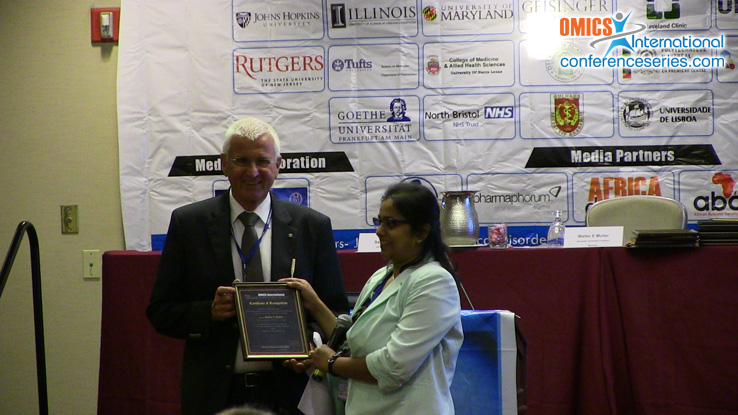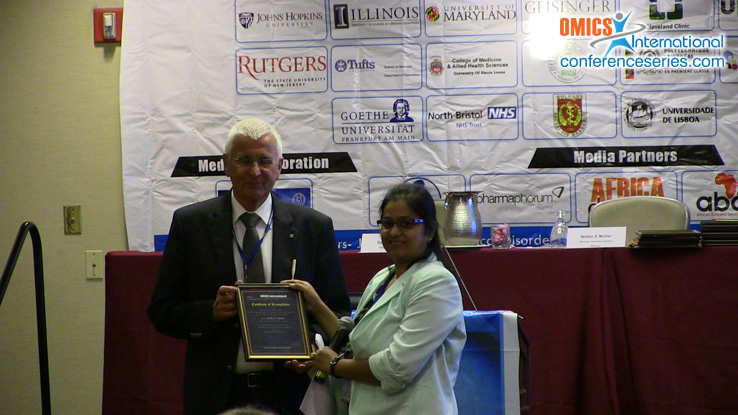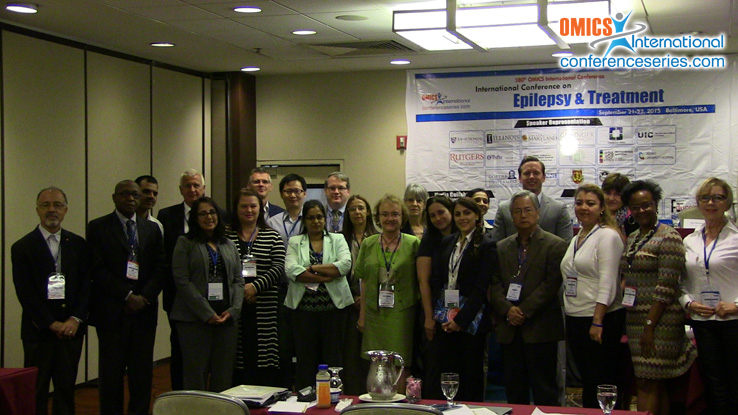
Walter E Muller
Biocenter University Frankfurt, Germany
Title: A mitochondrial role of SV2A protein in hyperexcitability: Studies with the anti-epileptic Levetiracetam
Biography
Biography: Walter E Muller
Abstract
Hyper excitability of cortical and hippocampal structures has recently been identified as one of the mechanisms of cognitive deficits in human aging, Alzheimer’s disease (AD) as well as in animals Models of AD. As underlying cause dysfunction of inhibitory interneurons rather than general neuronal over activity has been proposed probably associated with mitochondrial dysfunction. In line with these findings, out of several anti-epileptics which all reduce neuronal excitability only levetiracetam was able to reduce neuronal hyper excitability and to improve the associated cognitive defects. Because of its close relationship to the metabolic enhancer piracetam, we speculated that levetiracetam similarly improves neuronal function by enhancing mitochondrial function in a cell model of aging, AD and the interplay of both conditions. Our findings are fully in line with these assumptions as levetiracetam showed substantial improvement of disturbed mitochondrial paraments as ATP production, mitochondrial dynamics (fission and fusion balance), mPTP pore opening as well as impaired neuritogenesis due to mitochondrial defects. While these data are quite clear, we still were puzzled in respect of a possible mechanism of action of levetiracetam for these effects as its primary target, the SV2A protein seems to be closely related to brain synaptic membranes. However, we could clearly identify substantial levels of this protein also at the mitochondrial level. As it works in the brain as a regulator of vesicle fusion, we speculated on the basis of our findings that levetiracetam reduces mPTP opening that it might be involved in the complex mechanisms regulating mPTP function which also involve complex fusion mechanisms at the level of the mitochondrial membrane.



